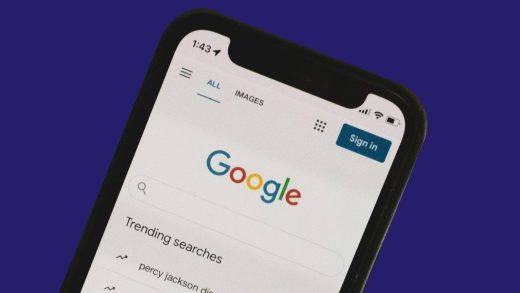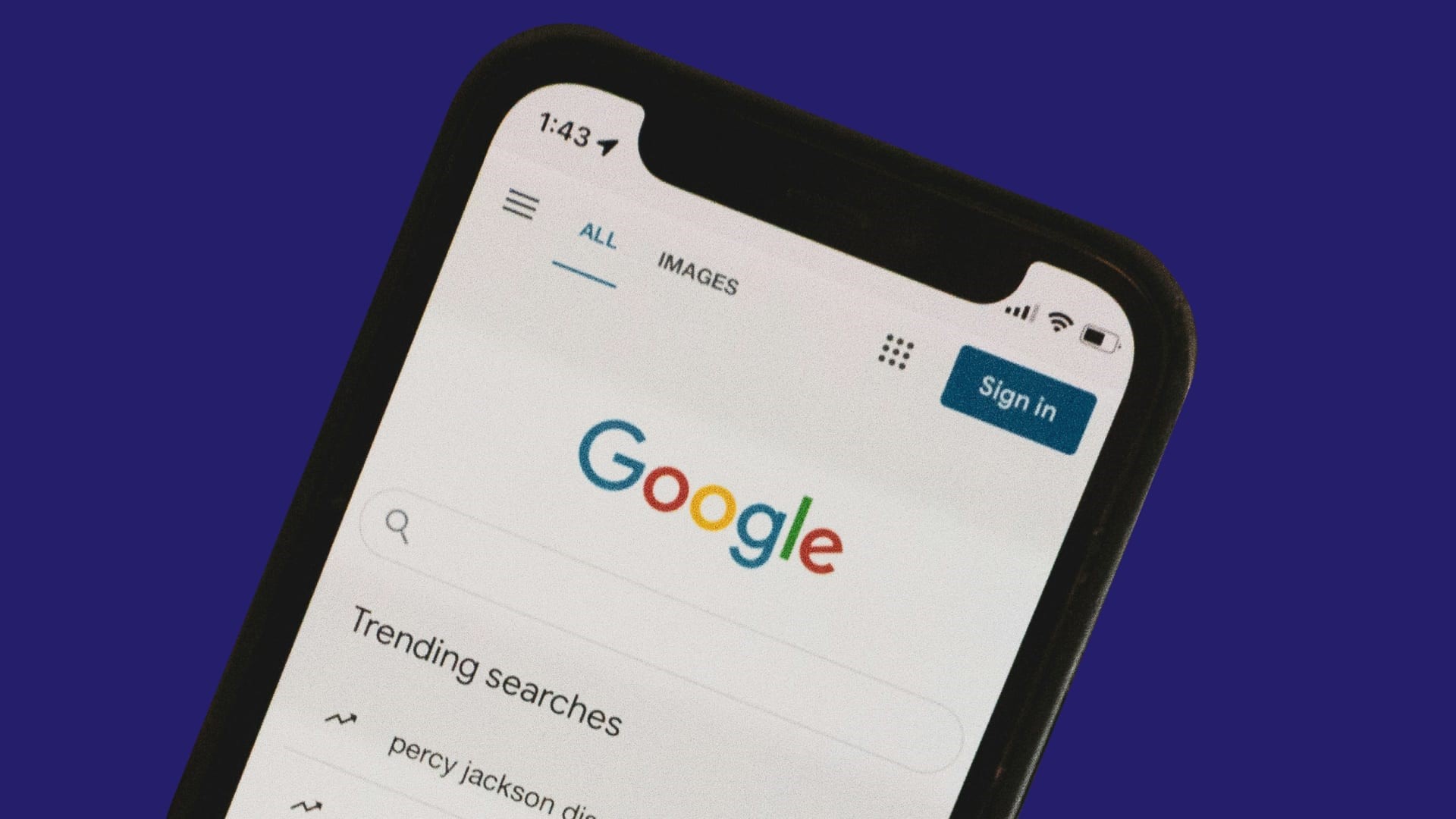An advertising watchdog explains what’s at stake with Google’s latest DOJ case
An advertising watchdog explains what’s at stake with Google’s latest DOJ case
Arielle Garcia of Check My Ads on how the trial is poised not only to disrupt the digital ad landscape but also to affect democracy and journalism as we know it.
As Google’s high-profile antitrust trial reaches the end of week three, the future of its gargantuan ad business is in flux. The director of intelligence at digital advertising watchdog Check My Ads, Arielle Garcia has been in every court session to cover the DOJ’s arguments and Google’s defense. As a veteran of the ad industry, she shares how the trial is poised not only to disrupt the digital ad landscape but also to affect democracy and journalism as we know it.
This is an abridged transcript of an interview from Rapid Response, hosted by Bob Safian, former editor-in-chief of Fast Company. From the team behind the Masters of Scale podcast, Rapid Response features candid conversations with today’s top business leaders navigating real-time challenges. Subscribe to Rapid Response wherever you get your podcasts to ensure you never miss an episode.
Earlier this year, a federal judge ruled that Google’s search business is an illegal monopoly. The penalty phase is still to come. Meanwhile, last week, Google successfully challenged a $1.7 billion fine from European regulators in the wake of losing a different challenge against a $2.7 billion EU fine. In the midst of all that, Google’s the target of another U.S. antitrust trial about its ad business. You’ve been in Virginia covering that trial. For those who aren’t ad industry insiders, can you explain what the allegations are and how we’ve come to this place?
Yeah, so back in the old days, the way that ads were bought was that literally you’d have your agency team calling publishers and trying to buy ad space. Today, much of that is automated. And so what this trial is about is Google’s monopolization of the ad tech. What the DOJ is focused on, in particular, is they allege that Google has monopolized three separate markets within the ad tech industry. The first is publisher ad servers, which is what publishers use to manage their inventory. The second is advertiser ad networks, which are basically the advertisers’ buying tools, the ad exchange that connects the two. The last claim is that they tied their products together. Now, why does that matter?
The business model of the internet is digital advertising. So by controlling these tools that are used to buy and sell ads, Google’s effectively controlling the business model of the internet. They have an outsize say in what content gets funded and what doesn’t, and as newsrooms are shuttering. A lot of that has to do, as the DOJ alleges, with Google’s conduct.
I just want to make sure I understand. This is like Google is on all sides of these transactions, right? They are facilitating the buying on the part of advertisers. They are facilitating the placing of those ads, from advertisers to publishers. They’re running the marketplace in between. And in the process of doing that, the allegation is that they’re diverting that business to their own properties and, in some ways, devaluing other competition.
We haven’t even gotten to the diverting to their own and operated in this trial, although that could be a whole different episode, but this is more about how they’re extracting money from all sides along the way. They’re taking over 30 cents of every ad dollar that’s spent. That is an overcharge, the brunt of which is predominantly borne by publishers. And that’s kind of what’s at the core of the trial.
This is what’s driven their stock price up so much, a dominant business, which every business aspires to in certain ways, but it has gotten dominant to a point that it has negative implications for the industry.
And that’s democracy, ultimately, right? I was surprised because I didn’t think that we would necessarily hear that argument explicitly in court, but there was a very short deposition read where one of the witnesses talked about how basically a healthy digital ad market is central to democracy because of the fact that it funds journalism.
As you talk about the evidence at this trial, it sounds pretty damning and difficult for Google. One potential outcome could be the breakup of Google, which has been speculated about. How realistic is that?
I believe that it’s realistic. So what the DOJ proposed is the sell-off of, at a minimum, the sell side of their ad tech business.
So that’s the publisher ad server and like, so GAM, Google Ad Manager Suite, is inclusive of the ad server, and now the ad exchange, they tie them together.
So at least that resolves in their mind the conflict of interest. I think if Google thinks that they can get the remedy to just be the spin-off of the sell-side business, that’s something that they’ve been dangling since at least 2022. They just recently offered it in response to, I think it was publisher litigation in Europe or the U.K. the other day. So they’ve been preparing for that.
I do think that even they think that it’s quite likely that that could be an outcome. My hope is that it does not stop at just the sell side of the ad tech business, because in order to be future-looking we have to address Chrome, Android, and their broader plan.
Give us a picture of what’s at stake beyond the industry insiders for businesses that buy advertising, which many of our listeners are for consumers, and then for Alphabet investors, which is almost everybody these days through funds and retirement.
I think from an Alphabet investor perspective, I already read analysis about how a divestiture would actually benefit shareholders. Like they would spin off these businesses into businesses that are pretty big in and out. Like, they will be okay. For advertisers, this is so important. This is the opportunity to fix the broken incentive structures that advertisers have been paying the price for forever.
And to be honest with you, that’s the case whether or not Google has to divest the sell-side business, because this case, this trial, has thrown into the spotlight all of these things that are going to catalyze calls for regulation.
So for advertisers, this is an opportunity to seize control of your ad spend and to actually get some transparency into what you’re paying for and how your ads are performing. For the general public, fixing the digital ad business model is fixing the internet. So this is the first and biggest step to creating a healthy information ecosystem and a sustainable future for journalism.
The skeptic in me about all this thinks the advertising business has always been a little bit based on smoke and mirrors. Like you’re reaching a certain audience that isn’t quite there. And everybody knows that whether you’re talking about buying TV ads or buying what used to happen in the magazine business or now digital. I don’t want to side too much with Google, but it’s like, are advertisers holding digital channels to standards that they haven’t held any other media channel to?
My broader missive is marketers are paying for bad data to reach fake people on unsafe sites while newsrooms shutter and democracy hangs in the balance.
Doesn’t sound great when you say it that way.
We don’t know what Google actually has. So there’s the illusion that they have all of this great data. And so marketers are like, “Oh yeah, yeah, yeah. Then we’ll just trust you.” Every time you just trust them, the problem gets bigger and bigger. There’s only so much a magazine is misrepresenting.
There was one witness, a Google witness, who talked about how a conservative amount of ad dollars that don’t go to working media is 50 cents of every dollar. That’s conservative. So, I mean, the waste is just on a different scale, and it’s impossible to verify because Google is such a black box.
So what this is about, what there’s opportunity for, is shining some light in what were dark corners. What happens from there? I mean, it’s about empowering advertisers. It’s not going to miraculously fix everything, but it also paves a way for there to be incentives for other ad tech companies to compete on quality.
From the point of view of publishers and journalism, the trends over the last 10 years have been crushing. There just isn’t a reward for producing information that is trusted and deep; you don’t get financially rewarded for it.
And in the same way, there’s not an incentive for ad tech companies to actually be transparent, to actually vet inventory, to actually weed out clickbait. . . . And why? The why with that really, really starts with the norms that Google sets and the fact that Google can get away with it.
So, what happens from here with the trial? What are the next big moments we should be looking out for?
Google’s expected to wrap up its defense this week. Then there will be rebuttals, and then apparently there’s a break before closing arguments and then a verdict.
Is a verdict from a judge instantaneous, or can the judge take weeks, months, however long to make the decision?
The Eastern District of Virginia is known as the rocket docket and has absolutely lived up to its name. This judge, in particular, wants to waste no time. Two weeks in, she was already saying that this is dragging.
I don’t think it will take her very long to deliberate. I don’t see it taking her more than a few weeks, but we really don’t know.
ABOUT THE AUTHOR
Fast Company
(6)



